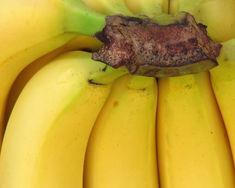
European Commission and the Food Standards Agency should lift "ridiculous" checks on imported bananas from Dominican Republic now, according to the Fresh Produce Consortium (FPC).
The consortium has called on the FSA and the European Commission to lift what it deems as unnecessary checks on imports of bananas from the Dominican Republic with “immediate effect”.
A recent review of Annex 1-listed products under EC regulation 669/2009 saw the Commission agree to de-list the bananas from 1 October this year, a move that the FPC has said should be brought forward.
"After extensive lobbying by the FPC we are delighted that the Commission has seen sense to remove the ridiculous controls on bananas from the Dominican Republic which has cost five UK importers around £50,000 since January 2010," said Nigel Jenney, ceo of the FPC. "However, the controls must be removed now to avoid these same companies facing a further £30,000 in costs over the next four months.
"The commission has agreed with what we have been telling them all along, that pesticide residues, if any, in bananas are not posing a risk to UK consumers," he said. "It's unacceptable that the industry has to incur even more costs and delays when the commission already confirms that these products are safe to eat."
Meanwhile, the FPC has raised concerns with the FSA and the EC over the inclusion, from October 2010 onwards, of other products to the Annex 1 listing, including Egyptian oranges, peaches, pomegranates, strawberries and green beans.
The UK is a major importer of these Egyptian products, accounting for 40 per cent of EU imports of oranges from Egypt in 2008, and the regulation changes could impact on many importing companies.
We are extremely concerned about the impact of these additional checks on the capacity of both ports and Port Health Authorities to cope with the required number of checks," noted Jenney. "It is likely that some will not have sufficient resources or storage facilities to cope with such high volumes coming from Egypt."
He added that the regulation was "poorly thought out", and that it failed to meet standards fro effective, risk-based and proportionate regulation.
"Increased checks, delays in clearance, additional storage costs, damage and loss of products and their disposal are devastating many importers and suppliers of highly perishable products," Jenney concluded. "The situation is likely to worsen in October unless the authorities allow the application of the Assured Trader status and reduce checks on reputable traders."



